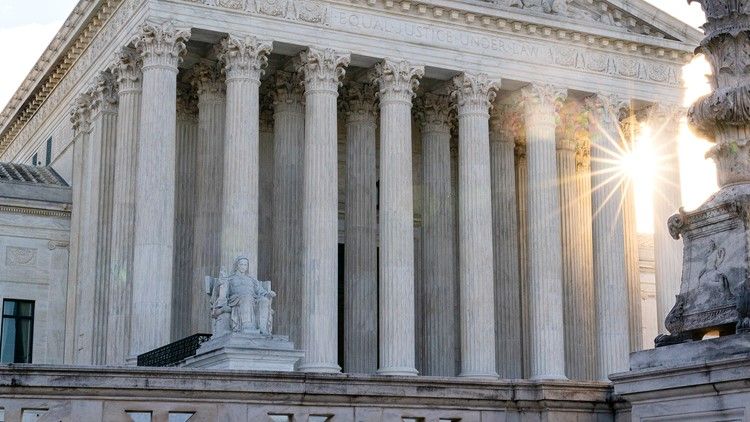On Thursday, the Supreme Court made the announcement that it would hear a case that has the potential to radically alter the way in which federal elections are conducted. If the court rules in favour of the plaintiffs, state legislatures will be given the authority to independently set election rules that are in conflict with their state constitutions. These rules will not be subject to review by state courts.
The case has the potential to have an effect on many facets of the election that will take place in 2024, including the ability to give the justices the ability to influence the race for the presidency in the event that there are disagreements regarding how state courts interpret state election laws.
If the court decides to hear the case, it has the potential to upend nearly every aspect of the electoral process in the United States. This would give state legislatures the ability to set new rules, regulations, and districts for federal elections with few checks against overreach, and it would also potentially create a chaotic system with differing rules and voting eligibility requirements for presidential elections.
The safeguards against political gerrymandering that have been created via the state courts might, in essence, be eliminated. It may become more difficult to challenge newly enacted voting rules at the state level in the future. In addition, the theory that underpins the case has the potential to pave the way for state legislatures to submit their very own slates of electors.
It is one thing to agree to hear a case, but it is another different to actually decide on the issue. The fact that four justices have already voiced at least preliminary support for the concept, however, makes it more than conceivable that a decision will be made to embrace it. Arguments will most likely be presented before the court in the autumn, and a ruling is expected to be rendered in the following year.
According to the National Conference of State Legislatures, Republicans now have total control over the legislatures of 30 states, and they were the driving force behind a wave of new voting restrictions that were imposed over the course of the last year. Additionally, Republican legislators in crucial swing states such as Wisconsin, Pennsylvania, and North Carolina have virtually secured their hold on power for the next decade by using their influence over the redistricting process.
On the other hand, Democrats are only in charge of 17 state legislatures.
The issue revolves on a voting map that was developed by the North Carolina legislature but was rejected by the State Supreme Court on the grounds that it was a political gerrymander.
A interpretation of two identical sections of the United States Constitution provides the foundation for the theory. The clause that is being challenged in the North Carolina case is called the Elections Clause. It states that “the times, places, and method of conducting elections for senators and representatives, shall be determined in each state by the legislature thereof.”
In light of this, Republicans in North Carolina maintained that the state legislature is the only institution in the state that is responsible for creating congressional districts, and that the state courts have no part to play in this process.
In a previous encounter with the case in March, when the challengers unsuccessfully sought emergency relief, three members of the United States Supreme Court said that they would have approved the motion if it had been presented to them in that capacity.
Justice Brett M. Kavanaugh thought the question was significant and shared this opinion. According to what he wrote, “the matter will very certainly keep coming up in the future until the court decides it firmly.”
However, he suggested that the court think about it in a methodical manner, independent of the context of an upcoming election, in order to avoid confusion.
However, if the autonomous state legislative theory is upheld in court, the repercussions of this decision might stretch well beyond the boundaries of congressional districts. Experts in the law say that such a decision could restrict the ability of state courts to strike down any new voting laws pertaining to federal elections and could also limit their ability to make changes on Election Day, such as extending polling hours at a location that opened late due to inclement weather or technical difficulties.
The decision to hear the case comes at a time when state legislatures headed by Republicans around the nation have been working toward the goal of wresting greater power over the management of elections away from neutral election officials and secretaries of state. The position of chairperson of the State Elections Board was one of the main powers that was taken away from the Georgia secretary of state as a result of a legislation that was approved the previous year.
Legal professionals point out that there are checks and balances in the federal constitution that would prevent a legislature from simply announcing after an election that it will ignore the results of the popular vote and send in a different slate of electors. These checks and balances would prevent such a declaration. However, if the legislature were to draught a statute prior to an election, for instance one that established the limits by which a legislature may assume control of an election and send its own slate of electors, this could be upheld in accordance with the independent state legislative concept.
